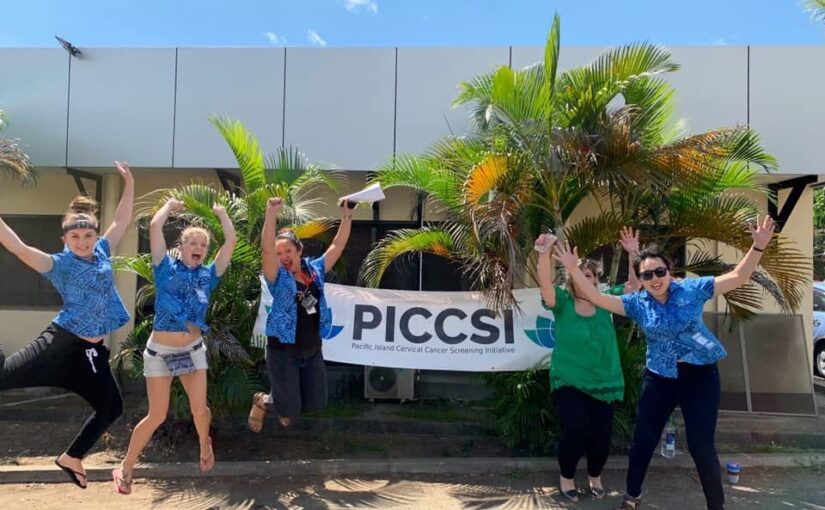Australian pathology volunteers travelled to Fiji in August 2023 to undertake a ground-breaking cervical screening and testing initiative known as the Pacific Island Cervical Cancer Screening Initiative (PICCSI).
PICCSI employs self-collected human papillomavirus (HPV) testing for Fijian women, to rapidly detect the virus that causes the majority of cervical cancers via point-of-care PCR testing.
Test results are returned within 45 minutes, showing whether a patient is HPV positive for a high-risk type of HPV. For those who test positive and require treatment, this can be provided on the same day.
The treatment removes pre-cancerous cells and is administered by the skilled Australian volunteer team, spearheaded by Melbourne-based obstetrician gynaecologist Dr Nicola Fitzgerald.
Dr Fitzgerald’s volunteer team is comprised of gynecologists, midwives, gynecology nurses, gynecologist trainees, and a GP, along with non-clinical administration staff.
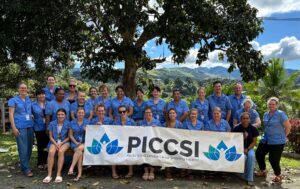
Dr Fitzgerald commented on the importance of pre-cancerous cell detection and removal for Fijian women,
“In countries like Australia, cervical cancer diagnoses are more accessible, and treatments like chemotherapy and radiation are available. However, in the Pacific region, options for radiation as a treatment option are limited, unless individuals can afford to travel abroad to receive treatment.
This means that many women in the Pacific do not receive adequate treatment following a cervical cancer diagnosis.
This was the primary driver behind the development of PICCSI. It allows us to detect and treat women in the pre-cancerous stage, before they develop cervical cancer and the need for radiation or chemotherapy is required. In this way, the project has transformed access to cervical health services for Fijian women.”
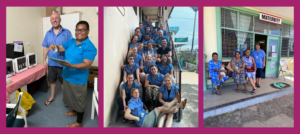
This year’s PICCSI program took place in five different rural centres across Fiji from 7th-11th August, with a total of 302 Fijian women being screened for cervical cancer. The testing resulted in a positive HPV rate of 17%, and 25% of those women received pre-cancerous cell removal treatment.
Partnering with the Australian Centre for the Prevention of Cervical Cancer (ACPCC), who provide one of the testing machines for the program, and local partners Fiji National University and the Department of Obstetrics and Gynaecology at Lautoka Hospital, PICCSI addresses critical gaps in cervical cancer prevention and treatment in the Pacific region.
Local women aged 30-50 years were invited to be screened, with three PCR testing machines provided to the program by ACPCC and the Fiji Ministry of Health, allowing 12 cervical samples to be tested per hour.
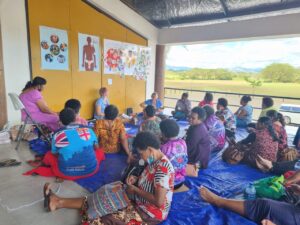
In addition to providing PCR technology, ACPCC provides ongoing pathology services, training, technical support, and result interpretation to the program on a volunteer basis.
PICCSI aims to address several key challenges faced by Fijian women in accessing the healthcare they need, such as travel and financial considerations, healthcare workforce capacity, and infrastructure.
John Crothers, Executive Officer of Pathology Awareness Australia commented, “Collaborating with our Pacific neighbours to combat cervical cancer is a commendable initiative. Cervical cancer remains a significant health challenge, particularly in regions with limited resources and access to advanced healthcare.
By joining forces, sharing expertise, and implementing preventative measures such as HPV vaccination and early screening programs, we can make a substantial impact on reducing the burden of this preventable disease in countries such as Fiji. It’s an opportunity to not only save lives, but also to strengthen the bonds of solidarity and support within our broader healthcare community.”
Prior to this screen, test and treat program, there could be delays of up to 8 weeks in obtaining test results. Combined with transportation and family challenges, this has contributed to high rates of patients who received abnormal results remaining untreated.
Dr. Fitzgerald emphasised, “There is an urgent need to improve cervical cancer screening and treatment accessibility for Fijian women. At PICCSI, we are laying the foundation for a broader Pacific-wide screening program. Our objectives extend beyond immediate care, as we aim to boost awareness of cervical cancer screening, involve local practitioners, and gather data to advocate for a nationwide screening program in Fiji.”
PICCSI’s impact has been profound since its inception in 2018, delivering prompt testing, diagnosis, and treatment. In each five-day mission, 300-400 women are screened, with an average of 10-15% requiring treatment each time. By offering immediate results, follow-up rates have significantly improved compared to delayed result models.
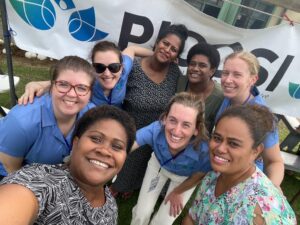 Dr. Fitzgerald concluded, “PICCSI showcases the collaborative spirit of healthcare professionals across borders. By providing accessible, immediate, and sustained care, we are contributing to the larger goal of cervical cancer prevention in the Pacific.”
Dr. Fitzgerald concluded, “PICCSI showcases the collaborative spirit of healthcare professionals across borders. By providing accessible, immediate, and sustained care, we are contributing to the larger goal of cervical cancer prevention in the Pacific.”

